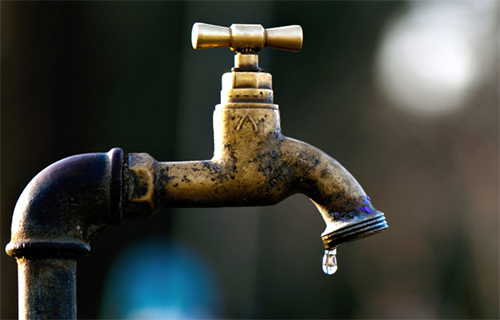Physical Address
Indirizzo: Via Mario Greco 60, Buttigliera Alta, 10090, Torino, Italy
Physical Address
Indirizzo: Via Mario Greco 60, Buttigliera Alta, 10090, Torino, Italy


On July 14, as an inspection visit to the wilaya of Tlemcen, the Minister of the Interior, Local Communities and Regional Planning, Brahim Merad, insisted on the imperative to exploit water resources in a rational way. But most of his instructions focused on improving water supply in this wilaya. The rational management of water resources, which implies the fight against the waste of this vital resource, is one of the conditions for a good supply of drinking water for populations which are subjected, in large part, throughout the national territory, to a more or less trying rationing.
The search for new sources of drinking water supply goes hand in hand with water saving. The public authorities insist on water gestures concerning water.
However, the spectacle of waste of water persists everywhere, with a more serious effect in summer. However, it is not the lack of awareness that are lacking. Thus, a vast national campaign to raise awareness of the water economy was organized by the National Agency for Integrated Water Resources (Agire) to the children of the summer camps during this summer. More generally, the Agire, of which it is one of its missions, carried out several awareness actions, during the first half of the current year, having affected different layers of society across the country, with the aim of instilling good practices of economy and sustainable management of this vital resource.
In this perspective, 14,549 pupils were made aware of a semi -annual assessment of the Agire which organized 260 “water classes” in schools, via its five water pool agencies (ABH), as well as 53 educational outings allowing 1,422 schoolchildren to discover hydraulic infrastructures, in particular purification stations, dams and pump stations. The Agire organized several technical and scientific days bringing together institutional actors, researchers, academics and representatives of the agricultural and industrial sectors. These meetings addressed key themes such as the reuse of wastewater, artificial recharging of the tablecloths and the water economy. The impact of efforts that tend to establish the water economy is attenuated by the reassuring official remarks on the satisfaction of the water demand from the populations.
Thus, last May, the Minister of Hydraulics, Taha Derbal affirmed, during a plenary session devoted to oral questions to the National People’s Assembly (APN), that his services worked to the execution of a plan aimed at strengthening the national capacities to the effect of mobilizing superficial water resources, including the prospecting of new sites for dams and reservoirs. He indicated that the National Agency for Dams and Transfers (ANBT) had started out to the field in order to explore potential sites for the creation of dams and water deductions in the country’s various wilayas, with the aim of mobilizing additional hydrocious resources.
“If the results of feasibility studies relating to each site fulfill the technical conditions, the hydraulics sector will offer budget registration of projects,” adds Taha Derbal. On another occasion, during a plenary session devoted to oral issues to the Nation Council, the Minister of Hydraulics affirmed the commitment of his department to achieve water safety in the face of the reduction in water resources due to climate change, through the adoption of a set of solutions, including the use of the use of unconventional waters and transfers from the regions of water abundance to those suffering from shortage. He had specified that in addition to the construction of dams and the desalination of seawater, the State opted for the use of wastewater treated in the agricultural sector, which consumes almost 70% of the water resources mobilized annually.
The use of these waters in agriculture constitutes one of the strategic axes adopted by the public authorities to preserve water resources, in addition to the policy of interconnection of dams for a balanced distribution of resources between different regions, as well as the projects of large transfers from areas rich in water resources to areas affected by water stress, he said.
Lakhdar A.